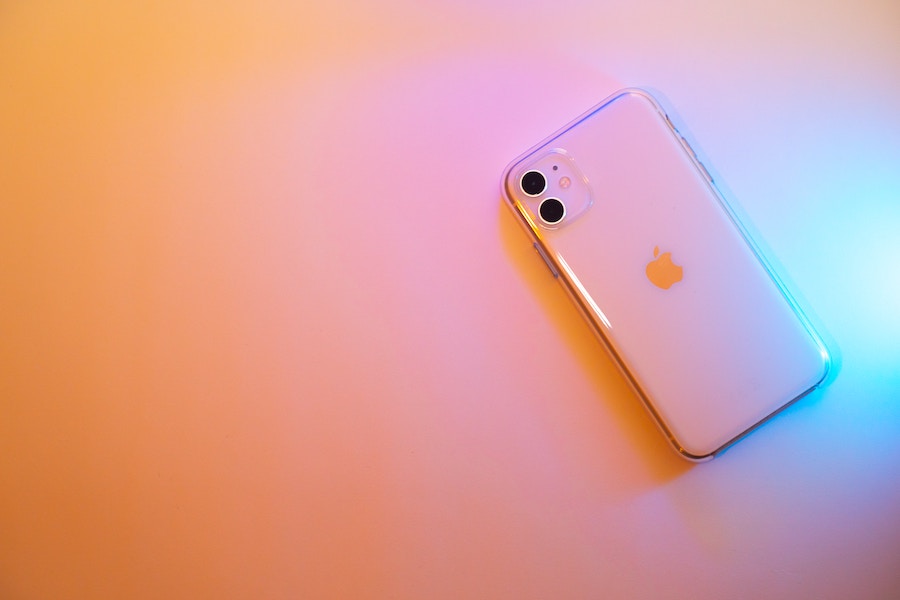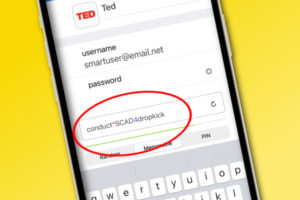With back-to-school here, or just around the corner for some of us, I like to take the time to have reinforce some basic tech rules with my kids and have some important tech conversations before things get super hectic.
Whether your kids have their own phones or not, tech conversations are important, and can help your family avoid potentially awkward or even unsafe situations. Below, find my top 5 that are especially important during the back-to-school season.
You might also like: Our Ultimate Guide to Digital Parenting
5 important tech conversations your kids should know as they head back to school
Before having these talks, I love Michelle Icard’s suggestion to do something fun while having tech conversations with your kids, like back-to-school shopping, grabbing a slice of pizza, or making a late-night ice cream run.
Another helpful tip: Lead with the premise that “you make good choices and you probably already know this” when talking to your kids about tech rules. It’s a better tack than making them feel like they’re not capable or totally unaware, and will make them more likely to be open to the tech conversations you’re having.
For more support with digital parenting, check out:
- Raising kids to be good digital citizens: The only 4 things you need to tell them
- How do I keep kids safe on social media? What to know.
- How to teach our kids to make good commenting choices on social media
- Kids and digital footprints: 6 things kids should know to keep them safer online
- 5 ways you can be a tech-positive parent

1. Only school stuff goes on school computers
It’s imperative that kids understand that their school-issued computers are 100% for school work and school work only. While it can be tempting to quickly pop over to a gaming site, streaming platform, or to check the Instagram feed on a school-issued laptop, kids should be aware that school computers are typically loaded up with tracking software. In some cases, your kids may not be able to visit their favorite sites at all.
Regardless, they should know that whatever site they visit, whatever personal email or PM they send on that computer, whatever comment they make on a Google doc on collaborative project, it can be viewed and potentially confiscated.
2. “Private” doesn’t necessarily mean private
Hopefully we all know by now that “private” social media accounts and chats, even if shared with just a few close friends can easily become public. Anyone they engage with can still screenshot and share images, messages and texts without your child knowing (with the exception of Snapchat, which gives screenshot notifications). Whether or not their account is private, remind your kids that they shouldn’t send any message, text, or photo unless they’re comfortable with anyone potentially seeing it.
3. You can’t take back texts
Texting, messaging, DM’ing in one form or another–this is just how kids communicate today. It’s quick and doesn’t leave a lot of room for thinking through every single word before hitting send. As adults, most of us have learned this lesson the hard way, but that can be extra difficult for kids.
Even while you can now delete or unsend a text or conversation on iPhone, it’s easy for the other party to screengrab it first. Their message can be shared, and worse, taken completely out of context and hurt your child. (Trust me, I’ve had this happen and it is awful.) Be sure your kids think through what might happen if a friendship turns sour or a confidence is betrayed.
4. Your phone is your phone (and the same goes for your passwords)
Another important tech rule for me is that my kids are the only ones who should be using their phones. I’m pretty strict about this, so if I get a text message from another person from my kids’ phones–even if it’s silly–they will hear about it. Not can is be expensive depending on your data plan, but your kids will be responsible for whatever is found on their phone.
I had a personal circumstance in which I saw a series of messages on my child’s phone that didn’t sound like her; as it turns out, a friend had asked to use her Instagram account on my daughter’s phone to get around a ban from her parents. Lesson learned.
And yes, the same goes for passwords–kids should never never share passwords with anyone besides you, especially because they’re not always great at creating the strongest passwords and often reuse them for multiple sites, despite our best guidance..
Related: How to make strong passwords and protect them: A simple guide
5. You can always talk to me. And I promise to listen first.
You can never say it enough: If there’s any issue, problem or concern related to social media or other technology, they can talk to you and that you promise to LISTEN FIRST. I write this in caps because you kids will not feel safe opening up if they think they’ll be scolded before getting the whole story out. I never say “you can talk to me, no questions asked” because of course it’s important to ask questions. (And better than jumping to conclusions.)
It’s so important to keep lines of communication about everything including technology, and Dr. Devorah Heitner has some terrific tips on how to do that.
A footnote:Some schools are instituting new policies in which students must hand their phones to a teacher or administrator for inspection if an issue arises, and you should check your own school’s rules about this and create a plan with your child. I have told my own kids that if any school official asks to see their personal property, they know to speak to me first if I can’t be present with them.
Related: 5 important digital parenting questions parents should ask themselves
The bottom line:
Kids are learning the ins and outs of technology–as are we–and they’ll mess up from time to time. We need to give them that room. However if your kids can’t stick to these 5 fairly basic tech rules, I’d consider dialing back phone privileges until they’re mature and responsible enough to make better choices.
I’m all for natural consequences that teach our kids lessons, but some of those can be pretty serious. The same way I wouldn’t hand my car to my kids without knowing they had a license and lots of practice, the same goes for their phones.
Top image: Martin Engel on Unsplash






